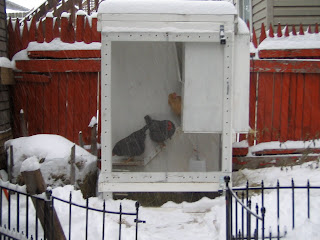Looking for work? Here's a new Green Job Posting!
Hi All,
The National Wildlife Federation's Great Lakes Regional Center has an
exciting new position available. Are you, or someone you know
interested in the Great Lakes Region? We are seeking an individual
responsible for developing state and Great Lakes education policy
initiatives, educating the public and other organizations about those
initiatives, and conducting advocacy (with public officials and the
media) to implement them.
Please see the full job description below and how to apply. And
please pass this on to others who might be interested.
REGIONAL EDUCATION ADVOCACY MANAGER, Conservation Programs, Ann Arbor,
MI
Find a job you’re wild about at the National Wildlife
Federation (NWF), the nation’s largest member-supported conservation
organization, at the forefront of global warming issues, reconnecting
our children with nature, and protecting America’s wildlife and
habitat.
We seek an individual responsible for developing state and Great
Lakes education policy initiatives, educating the public and other
organizations about those initiatives, and conducting advocacy (with
public officials and the media) to implement them. This position is
responsible for regular communications with a regional network of
grassroots stakeholders, the coordination of regional meetings with
influential people and policy makers, the development of advocacy
opportunities, and partnership development. This position also supports
NWF’s federal policy agenda through state contacts and where relevant
state governments and municipalities are engaged.
Must have a minimum of 5 years experience in conservation
policy/advocacy or youth/education policy/advocacy, project and policy
campaign planning and implementation. Experience in state policy
development is a plus. Knowledge of environmental education and Great
Lakes region and issues are also preferred.
Exceptional interpersonal skills are necessary to build and
maintain the kind of relationships needed to succeed at this job. Must
be an excellent writer, researcher, and strategic thinker. He or she
must have experience motivating, recruiting, and organizing people from
broad and diverse backgrounds; and experience reaching out to media and
decision makers. He or she must have excellent communication and
organizational skills. Must be a self-starter, able to work closely with
local NWF affiliates, regional offices and staff; national education
advocacy team, and regional partners and allies; independently; and able
to travel around the state, region, and anywhere else required.
Do you hear the call of the wild? Apply at
http://careers.nwf.org and
join us in mobilizing Americans to protect our country’s wildlife.
NWF offers a competitive salary, excellent benefits and is an equal
opportunity employer committed to workplace diversity.
National Wildlife Federation
It starts with people…like you.





















